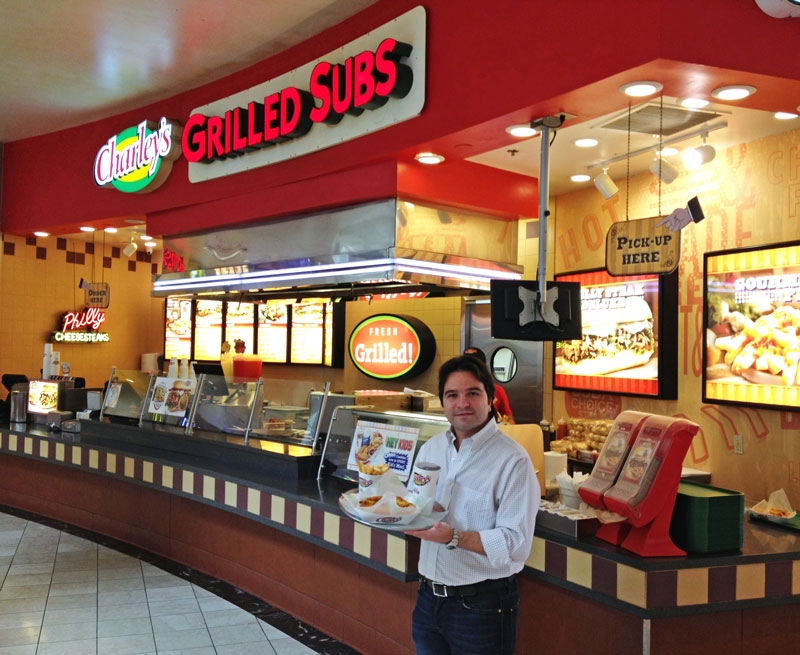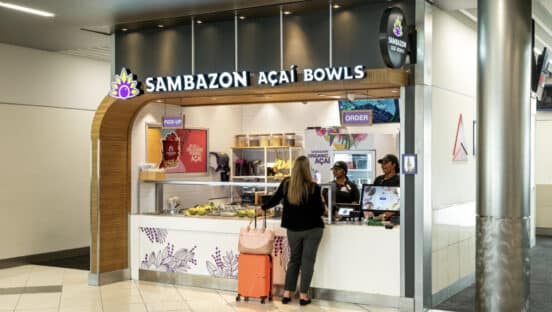Multiunit franchising is becoming a common practice in the quick-service industry, but one Charley’s Grilled Subs franchisee wants to take it to the next level.
Mario Contreras wants to own 10 percent of his company’s entire system.
In less than a decade, Contreras has already made his mark on Charley’s. Through his 26 stores in the U.S., Panama, Venezuela, and the Dominican Republic, Contreras manages 400 employees and nine of his own corporate staff members. And over the next 10 years, he plans to open 300 more Charley’s locations to reach that 10 percent milestone—a goal that has the backing of Charley’s corporate executives.
Contreras discovered the Charley’s brand about a decade ago when he first visited a Tampa, Florida, store—a unit he now owns.
“When I tried Charley’s, the first thing that hooked me was the quality,” he says. “It was a completely different sub than I was used to. When you go into Charley’s, the first thing you see is that the quality is way higher than any other concept. Everything is made fresh on the grill and everything is hot. [Customers] see how we cook their food right in front of them.”
Contreras had two units open in Miami by 2005, then opened Charley’s first Latin American location in 2006, bringing the brand to his home country of Venezuela. He had to re-create many parts of the supply chain there, sourcing ingredients and supplies locally.
Since 2009, Contreras has brought on two business partners and has catapulted growth, opening food-court stores in regional and super-regional malls across the country. Collectively, his 26 stores do about $17 million in annual business.
“We have been able to triple the size of our company in a matter of two-and-a-half years,” he says.
Through his work in his international stores, Contreras has helped create guidelines for the operations of other international Charley’s locations. He serves on the franchisee advisory committee and even runs a 50-50 partnered store with Charley’s corporate.
“That’s how strong the relationship is,” Contreras says.
Mike Cassar, vice president of marketing for Charley’s, says Contreras’s experience and knowledge have thrust him into a leadership role among other franchisees and even executives.
“Part of the reason we love working with Mario so much is that role-model aspect. Other franchisees look to him to see what is right and how to do things,” Cassar says. “We learn a lot from Mario. He gives us a lot of insight in ways to penetrate markets and to do better in the markets we already have.”
His stores are profitable, Cassar says, but they also keep quality and the customer experience as top priorities.
“It’s not just that Mario has achieved great growth and opened all these stores. He’s also opened them up with strong customer satisfaction and he’s got a healthy bottom line,” Cassar says.
“When you do have a good franchisee, it’s more than just their ability to buy a store and run it. It’s their ability to look forward. He is not the type of person who wants to just sit still and run his store. He wants to grow.”
Executives are supportive of Contreras’ plans to eventually own 10 percent of the company’s franchises. “I don’t know if it’s going to be 10 percent of the company or not. But we completely support him,” Cassar says. “We want to provide him every opportunity to expand, because he does the brand good.”
Multiunit franchisees are becoming more common within the franchising industry, says Matthew Haller, vice president of public affairs for the International Franchise Association. “Increasingly, the clout is moving to the multiunit operator,” he says.
But owning 10 percent of a company, he says, is rare.
“In a 500-unit franchise, I’d say it’s definitely the exception. That’s high,” Haller says.
While other franchisees might seem put off by a peer owning as much as 10 percent of the system, Haller says operators should embrace a franchisee like Contreras as someone who can help their own endeavors.
“If they’re looking to grow their system and grow their franchises, and some new franchisees can learn from the most successful operator in that system, then that’s a great thing,” he says.
And with a strong enough corporate-franchisee relationship, executives can lean on successful franchisees like Contreras to help with testing new store designs, marketing efforts, or products, Haller says.






